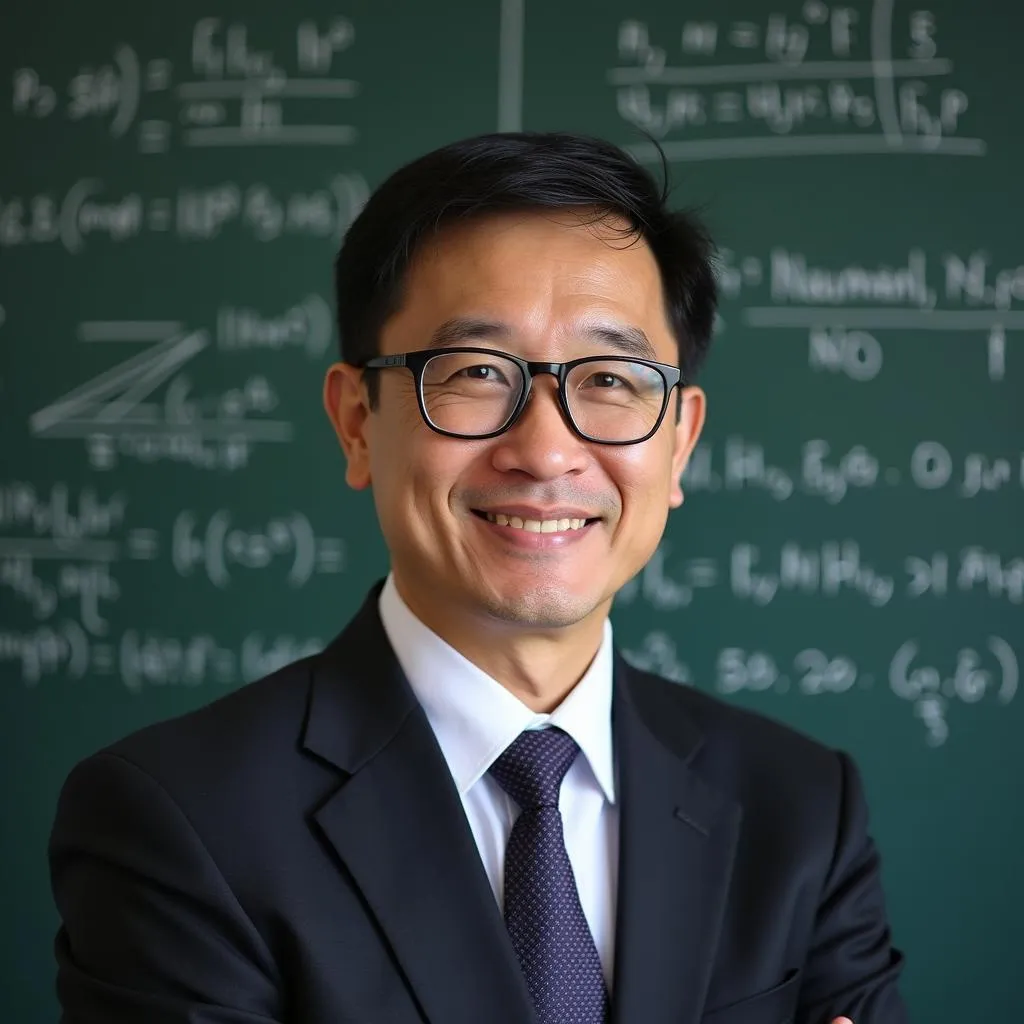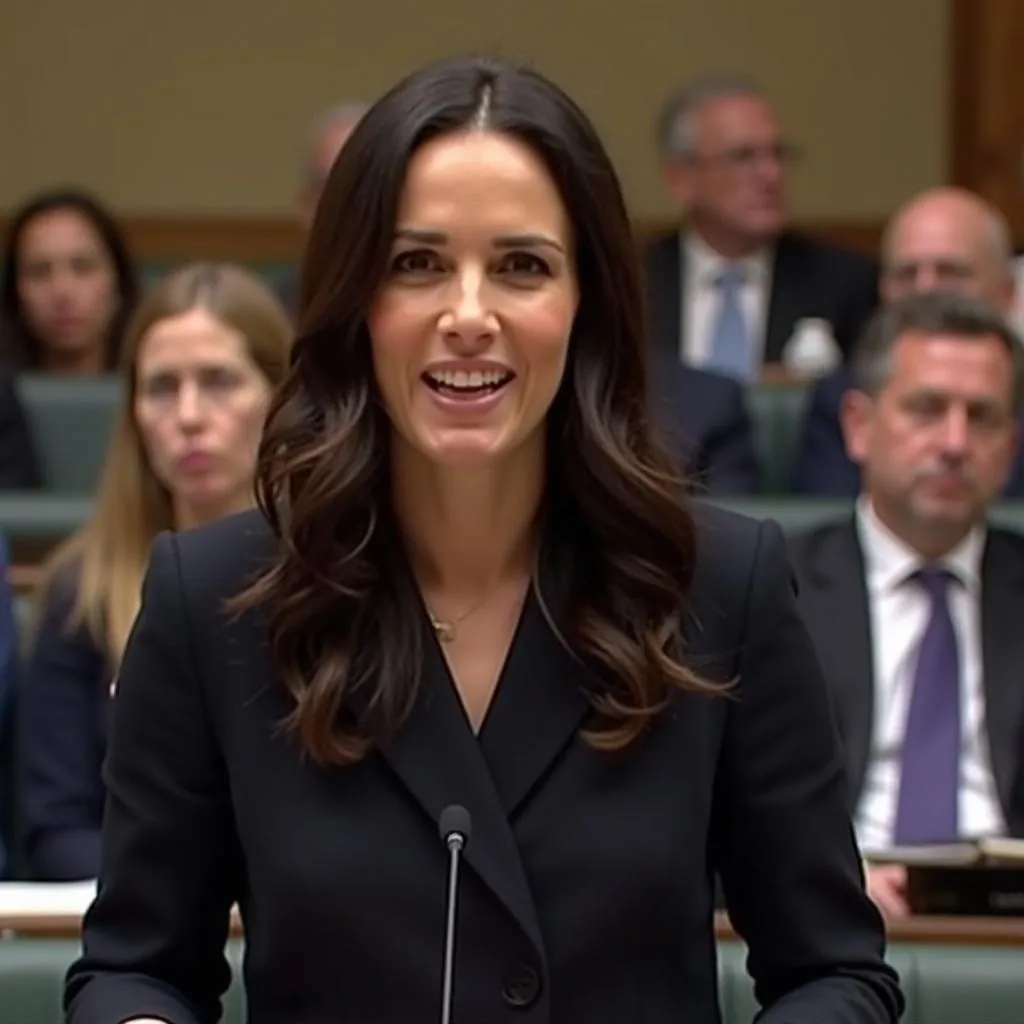The topic of describing a famous teacher or educator from one’s country is a common theme in IELTS Speaking tests. It allows candidates to showcase their language skills while discussing influential figures in education. This topic has appeared frequently in past exams and is likely to remain relevant in future tests.
Nội dung bài viết
Part 1: Introduction and Interview
In this section, the examiner may ask general questions about education and teachers. Here are some possible questions:
- Do you have a favorite teacher from your school days?
- What qualities do you think make a good teacher?
- How important are teachers in society?
Let’s look at a sample answer for the first question:
Examiner: Do you have a favorite teacher from your school days?
Candidate (Band 7-8 answer): Absolutely. My favorite teacher was my high school literature teacher, Mrs. Nguyen. She had a profound impact on my love for reading and writing. What set her apart was her passion for the subject and her ability to make complex works of literature accessible to us. She encouraged critical thinking and always pushed us to dig deeper into the texts we studied.
Part 2: Long Turn
Here’s a sample cue card related to the topic:
Describe a famous teacher or educator from your country
You should say:
- Who this person is
- What they are famous for
- What impact they have had on education in your country
- And explain why you think they are important
Sample answer (Band 8-9):
I’d like to talk about Professor Ngo Bao Chau, a renowned mathematician from Vietnam who has made significant contributions to the field of education and mathematics.
Professor Chau gained international recognition when he was awarded the Fields Medal in 2010, which is often referred to as the “Nobel Prize of Mathematics.” This achievement not only brought honor to Vietnam but also inspired a generation of young mathematicians in the country.
What sets Professor Chau apart is not just his mathematical prowess, but also his dedication to improving education in Vietnam. He has been instrumental in establishing the Vietnam Institute for Advanced Study in Mathematics, which aims to nurture young talent and elevate the standard of mathematical research in the country.
His impact on education in Vietnam has been profound. Professor Chau has actively promoted the importance of STEM education and has worked tirelessly to bridge the gap between international and Vietnamese mathematics communities. His efforts have led to increased funding for mathematics education and research, creating opportunities for young Vietnamese students to pursue careers in this field.
I believe Professor Chau is important because he serves as a role model for aspiring scientists and mathematicians in Vietnam. His success demonstrates that with dedication and hard work, it’s possible to achieve excellence on the global stage, even coming from a developing country. Moreover, his commitment to giving back to his homeland through education initiatives showcases the importance of using one’s success to uplift others and contribute to society.
In conclusion, Professor Ngo Bao Chau’s contributions to mathematics and education have not only put Vietnam on the map in the academic world but have also inspired a new generation of thinkers and problem-solvers in the country.
 Professor Ngo Bao Chau, renowned Vietnamese mathematician
Professor Ngo Bao Chau, renowned Vietnamese mathematician
Follow-up questions:
Examiner: How do you think technology has changed the role of teachers?
Candidate (Band 7-8 answer): Technology has significantly transformed the role of teachers in recent years. While it has provided new tools for engagement and personalized learning, it has also challenged teachers to adapt their teaching methods. Teachers now need to be facilitators of information rather than just providers, guiding students on how to critically evaluate and use the vast amount of information available online. Additionally, technology has enabled more interactive and collaborative learning experiences, allowing teachers to create dynamic classroom environments that extend beyond traditional lectures.
Candidate (Band 8-9 answer): The advent of technology has fundamentally altered the educational landscape, redefining the role of teachers in multiple ways. Firstly, it has empowered educators to deliver content more effectively through multimedia presentations, online resources, and interactive software. This shift has necessitated a change in teachers’ skill sets, requiring them to be tech-savvy and adaptable.
Moreover, technology has fostered a more student-centric approach to learning. Teachers are now expected to be mentors and guides, facilitating independent learning and critical thinking rather than simply disseminating information. This change aligns with contemporary pedagogical theories that emphasize active learning and problem-solving skills.
However, it’s crucial to note that technology has also presented challenges. Teachers must now navigate issues such as digital literacy, online safety, and the potential for technology to be a distraction. Consequently, the modern teacher’s role has expanded to include digital citizenship education and the judicious integration of technology into the curriculum.
In essence, while technology has augmented the teacher’s toolkit, it has also underscored the irreplaceable value of human interaction and guidance in education. The most effective educators are those who can leverage technology to enhance, rather than replace, their traditional teaching skills.
Part 3: Two-way Discussion
Examiner: How has the perception of teaching as a profession changed in recent years in your country?
Candidate (Band 7-8 answer): In recent years, there’s been a noticeable shift in how teaching is perceived as a profession in my country. While teachers have always been respected for their role in shaping young minds, there’s now a growing recognition of the challenges they face. The increasing demands of the job, including adapting to new technologies and addressing diverse student needs, have highlighted the complexity of the profession. This has led to calls for better support and resources for teachers, as well as improved compensation to attract and retain talented educators.
Candidate (Band 8-9 answer): The perception of teaching as a profession in my country has undergone a significant transformation in recent years, reflecting broader societal changes and evolving educational paradigms. Historically, teaching was viewed as a noble but perhaps undervalued vocation. However, there’s been a marked shift towards recognizing it as a complex, multifaceted profession that requires a diverse skill set and continuous professional development.
This evolution in perception can be attributed to several factors. Firstly, the increasing complexity of the educational landscape, with its focus on 21st-century skills and technology integration, has underscored the sophisticated expertise required of modern educators. Secondly, there’s been a growing awareness of the critical role teachers play in shaping not just academic outcomes, but also the social and emotional development of students.
Moreover, the global emphasis on education as a key driver of economic and social progress has elevated the status of teachers as essential contributors to national development. This has led to increased scrutiny of teacher training programs and a push for higher standards in the profession.
However, this heightened recognition has also brought to light the numerous challenges faced by teachers, including workload pressures, resource constraints, and the need to constantly adapt to new educational policies and technologies. Consequently, there’s been a growing discourse around the need for better support systems, competitive compensation, and career development opportunities for teachers.
In conclusion, while the teaching profession is increasingly respected for its complexity and importance, there’s also a greater understanding of the support and resources needed to enable teachers to fulfill their critical role effectively. This evolving perception is likely to shape educational policies and practices in the coming years, potentially leading to positive changes in the teaching profession.
Key Vocabulary and Phrases for High Scores
-
Renowned /rɪˈnaʊnd/ (adjective): Famous and respected.
Example: She is a renowned expert in child psychology. -
Instrumental /ˌɪnstrəˈmentl/ (adjective): Important in making something happen.
Example: His research was instrumental in developing new cancer treatments. -
Elevate /ˈelɪveɪt/ (verb): To raise or lift up, especially in status or importance.
Example: The new policy aims to elevate the standards of education in rural areas. -
Profound /prəˈfaʊnd/ (adjective): Very great or intense.
Example: The professor’s lectures had a profound impact on her students’ understanding of physics. -
Foster /ˈfɒstə(r)/ (verb): To encourage or promote the development of something.
Example: Good teachers foster creativity and critical thinking in their students.
 Teacher fostering creativity in a diverse classroom
Teacher fostering creativity in a diverse classroom
Examiner’s Advice
To achieve a high score in the IELTS Speaking test when describing a famous teacher or educator:
-
Prepare a range of vocabulary related to education and influence. Use these words naturally in your responses.
-
Structure your answers clearly, especially in Part 2. Use discourse markers to organize your thoughts.
-
Provide specific examples to support your points. This demonstrates your ability to elaborate and adds authenticity to your response.
-
Show critical thinking by discussing both positive aspects and challenges in education.
-
Practice speaking fluently about educational topics. Familiarize yourself with current issues in education to discuss them confidently.
Remember, the key to success is not just knowing what to say, but how to say it effectively and confidently.


